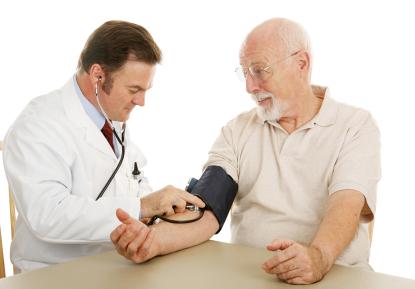Yes, it is true. Women do have prostates. Fortunately, they are very small and underdeveloped, and not at risk for cancer. But, there still remains the fact that 1 in 6 men will be diagnosed with prostate cancer at some point in their lives. This is a disease that not only effects the men diagnosed, but their wives, girlfriends, and families as well.
Prostate cancer usually shows no signs or symptoms, so it can be typically overlooked until it is too late. The best thing to do is to encourage a man to go for a checkup if he experiences persistent hip or back pain, has difficulty urinating, feels pain and/or a burning sensation during urination, or has blood in his urine. These are all things that cause prostate cancer in men, and should not be taken lightly. Men who normally have yearly checkups with a registered M.D. are less likely to miss these early signs, so always encourage them to have these checkups, even if they are not showing any abnormalities that could suggest cancer. To summate, the best thing a partner, child, friend, or spouse of a man, especially after he has turned 50, can do to help prevent the onset of prostate cancer is to encourage him to continue to get checked up.
Even if a man and his partner can do everything in their power to try to be ready for prostate cancer, they can not always prevent it. A man’s age, family history, and race all play factors in the development of prostate cancer in a man. African American men who are over 50 and have a family history of prostate cancer are at the highest risk. Other men can get it though. So, if a man does become diagnosed, it is the responsibility of his family and friends to help him get treatment, possibly with a prostate cancer medication.
An important thing to remember is that the mortality rate of a man diagnosed with prostate cancer is virtually zero. So remain strong. To show support for someone dealing with prostate cancer, you should regularly attend doctor’s appointments and support groups with him. Another great way to show that you support him is to do as much research you can. Truly knowing all you can about this disease will help let a man suffering know that you want to help as much as possible.
The final way I can suggest for the partner of a man to support him in his dealing with prostate cancer is to connect with other women in the same place as you. There is an organization known as WAPC which is a support group for women who are with men suffering from prostate cancer.
If all of these steps are taken, it will help a man suffering know that he has someone to support him, no matter what. Behind every great man is a great woman, and that fact remains for those suffering from prostate cancer. Having someone there to support a man while he is suffering can mean all the difference.



